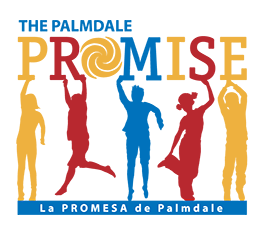Digital Instructional Resources and Student Privacy
Digital instructional resources improve student engagement and achievement through access to powerful learning opportunities and are essential in Palmdale School District's PROMISE goals. These tools help create globally competitive learning environments of high intellectual performance across the curriculum and in all areas required for 21st-century success for students. They also provide the opportunity to develop high levels of multilingual and STEAM (science, technology, engineering, arts, and mathematics) competencies. Additionally, they grant access to valuable online resources and databases that would otherwise be out of reach. Palmdale School District is committed to safeguarding in accordance with COPPA (Children's Online Privacy Protection Act).
The Palmdale School District is deeply committed to upholding the laws and contracts that protect student data privacy. The contracts entered into with education technology service providers contain language that requires companies to implement security protocols to protect students’ personally identifiable information and comply with state (California Education Code 49073.1 (AB1584)) and federal data privacy laws.
Privacy Law
Federal/State Regulations and Code
CSDPA - California Student Data Privacy Agreement
Under 13 Supplemental Digital Instructional Resources
